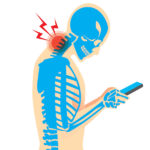Attention Deficit Hyperactivity Disorder (ADHD) plagues 3-5% of all school age children. It is the most commonly diagnosed mental disorder in kids. It may be complicated and without a “cure”, but we know that maximizing brain health is a crucial factor in the condition’s successful management, and everything counts.
Here are three things to avoid and three brain builders for Attention Deficit Hyperactivity Disorder. https://www.ncbi.nlm.nih.gov/pubmed/15231969
THE BRAIN AND ADHD
ADHD is a condition with which those affected have difficulty with inattention, hyperactivity, impulsivity, regulating their mood, and organization.
Technically speaking, it is a brain disorder.
Researchers have demonstrated differences in the brains of children with ADHD when compared to non-affected children. Some of these differences continue beyond childhood. https://www.sciencedaily.com/releases/2017/02/170216105919.htm
What can we do to help improve the brain’s function in hopes it will have a positive effect on ADHD (and all levels of health in general)?
3 THINGS TO AVOID WITH ADHD
1. Avoid Excessive Sugar
A handful of studies have explored the relationship between refined sugar consumption and ADHD. The consensus is that there is no correlation or a poor correlation. While this seems surprising to most, it doesn’t negate your experience. https://www.healthline.com/nutrition/too-much-sugar#section9
If as a parent, you find your child’s behavior worse when sugar consumption is elevated, remove it from their diet.
But what if you don’t find a downward spiral in their moods and attitude when gorging on sugary treats? It still doesn’t make refined sugar a health food!
Immune suppression, obesity, diabetes and impaired learning are more than enough reasons to drop the candy from your kids diet. https://www.healthline.com/nutrition/too-much-sugar#section9 https://www.huffingtonpost.ca/entry/sugar-brain-mental-health_n_6904778
2. Avoid Wheat
Gluten is a group of storage proteins found in wheat, rye, and barley.
In those who have Celiac Disease or Gluten Intolerance, exposure to these dietary proteins can lead to damage of the lining in the small intestine. With these cases, the digestion and absorption of nutrients is unable to occur properly, and the result is a broad spectrum of problems. https://www.ncbi.nlm.nih.gov/pmc/articles/PMC3184556/
For those dealing with ADHD and have Celiac Disease, there is a positive relationship with removing gluten from the diet and observing significant improvement in symptoms.
Once again, we face the same situation as sugar…whether dealing with ADHD or not, we need to ask ourselves “are foods that include wheat or other food toxins adding required nutrients to our child’s diet without any significant negative effects?” If not, there remains no purpose for their inclusion, at least not as routine healthy food choices.
3. Avoid Inactivity
Causative or simply a correlation, the massive increase in ADHD diagnoses over the past 20 years run parallel with the alarming increase in adolescent inactivity.
Add the drop in general activity to the standard desk life most school age kids deal with, and you’ve created a recipe for disaster. https://www.huffingtonpost.com/brad-stulberg/adhd-exercise_b_4835640.html
3 BRAIN BUILDERS FOR ADHD
1. Add Omega 3 Fats
Omega-3 is an essential fatty acid.
Essential fats are vital to the brain and body’s optimal functioning. The body cannot produce these fats so they must be consumed.
A healthy balance of omega-6 to omega-3 fats help to keep our nervous system working well. It also aids in the regeneration of new cells.
There is some evidence fish oil, which is high in omega-3, can benefit those with ADHD by improving the mental skills in affected children. https://www.webmd.com/add-adhd/guide/vitamins-supplements-adhd#
2. Add Chiropractic Care
The role of the spine in optimal neurological function is often an unaddressed missing link with many health conditions.
Movement of the spine stimulates small receptors embedded in the surrounding tissues. These receptors send signals up to the brain. Nobel prize winning neuroscientist Roger Sperry found that 90% of the stimulation and nutrition for the brain comes from the movement of the spine.
Repeated cases studies in children with ADHD show a positive benefit to the related symptoms when undergoing chiropractic care to correct structural distortion with the spinal column. http://icpa4kids.org/Chiropractic-Research/ADD/ADHD/
3. Add Vigorous Exercise
A regular exercise program stimulates areas of the brain that are affected in children and adults with ADHD.
Vigorous movement causes the release of neurotransmitters dopamine and norepinephrine. This leads to more focused attention, impacts the cerebellum reducing fidgetiness, and impacts the limbic system making kids less reactive. https://www.additudemag.com/the-adhd-exercise-solution/
When it comes right down to it, the diagnosis and treatment is controversial. Regardless, creating a healthy brain and body is only going to be a positive for any child.
Does your child have ADHD?
What strategies have you found to be successful?
Dr. Derek Gallant
Dr. Derek Gallant has committed himself to helping others live the best life possible. After graduating from Wesleyan University, he received his Doctor of Chiropractic Degree from Life Chiropractic College West where he finished 2nd in his class. He is the owner of Beverly Family Chiropractic and co-founder of The Well Family Foundation. Dr. Gallant is certified through the International Chiropractic Pediatric Association (ICPA) in the Webster technique, an analysis focused on assisting pregnant women in a healthy pregnancy and natural birth. He has inspired thousands of people to take control of their own health using the Life By Design method. Apart from full time practice you can find Derek at the parks and coffee shops around Beverly with his family, training hard at the gym, or at the beach surfing.








